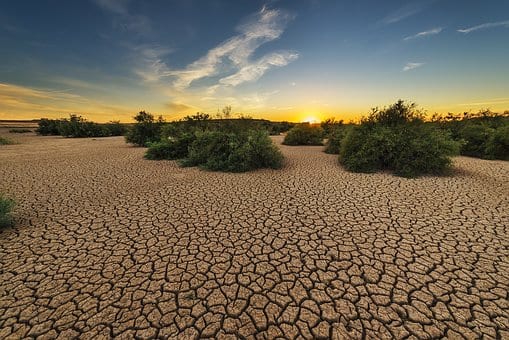
Expat Safety Tips: Drought
Many people associate crippling droughts with desert landscapes or particularly hot countries that lack rainfall. However, there are locations around the world where rainfall is below average but, the majority of the time, everything is seemingly normal. Some of the most drought prone countries in the world include China, Morocco, Ethiopia and Afghanistan.
Land only makes up 29% of the earth, so many find it surprising that drought is ever an issue. However, a third of land mass is considered desert. Global warming means that, by 2050, a large part of the planet will have limited access to fresh water. Whilst this definitely needs to be addressed, expats should be aware of how to act during a drought.
What is a drought?
Droughts can occur in all types of climate, not just deserts. Droughts are a natural disaster and people, particularly in underdeveloped countries, loose their lives. Unlike most other natural disasters where damage is seen instantly, droughts are more evasive. What might begin as a dry spell, can gradually escalate over time with devastating impacts.
In 2011 Somalia experienced a drought that lead to a famine. Over 260,000 East African people lost their lives due to western aid not being able to enter al-Qaeda ruled Somalia.
A couple of years later climate change caused a water shortage in Syria. Experts believe the Syrian drought was a contributing factor of the political issues in the country at the moment as rural people, who were thirsty and starving, descended upon the cities. For this reason, the death toll remains unknown.
However, one of the most shocking droughts happened in Ethiopia throughout 1984 and 1985. The drought wiped out crops, putting five million Ethiopian people at risk of starvation. Whilst worldwide aid and relief came to Ethiopia, it was too late and 1 million people perished.
What causes droughts?
Droughts are a complex natural phenomenon with unpredictable impacts. Yet, they have affected more people around the world than any other natural disaster, over the last 40 years.
The cause of droughts is most often a direct result of a lack of rainfall, for a prolonged period of time. However, whilst they are naturally occurring, human activities can intensify the problem.
A drought caused by a lack of rainfall can be classed as a meteorological drought. If the situation persists, it is known as a hydrological drought where reservoirs, rivers, lakes and streams become depleted.
Weather patterns, climate change, deforestation and excess water demand, all contribute to the occurrence of droughts across the globe.
Drought prevention
Whilst it’s fair to say, no one person can prevent a drought, collective effort to conserve water can have a huge impact on drought vulnerability. Water is a precious resource and it can be easy to forget this.
Considering a dripping tap could lead to the loss of around 2,700 gallons of water per year, when it comes to preserving water, every little helps. By making water conservation part of your daily life, you can be safe in the knowledge that you are making a difference.
There are a few ways expats living in drought prone countries can help conserve water. Consider implementing some of these water saving strategies into your home and lifestyle.
- Turn off the tap when brushing your teeth, shaving or washing your face
- Shorten the length of time in the shower
- Fix leaking taps and pipes
- Never throw away water, use it for another purpose i.e. watering the plants
- Opt for energy and water efficient appliances i.e. eco-flush toilets
- Plant native and drought tolerant trees, shrubs and other plants in your garden which require less water and are better able to withstand drought conditions
- Avoid installing water features
- Harvest rainwater
Actions to take during a drought
Local authorities will usually announce guidelines and impose water restrictions during a period of drought, so be sure to contact the local government authority for current information and advice. Most restrictions during a drought will be in relation to the use of water and using it only where essential i.e. drinking and cooking. Non-essential uses might include watering garden plants, washing the car, filling a swimming pool etc.
In addition to any regional restrictions in place, during a drought expats would be wise to consider taking some of all of the following actions:
- Lessen water use required for bathing – i.e. don’t take baths, opt for very short showers, only wash every other day etc
- Don’t flush the toilet with each use and dispose of tissues in the bin
- Wash clothes and dishes less frequently
- Avoid using machines which use lots of water and where less water intensive alternatives can be used i.e. dishwashers
In severe and prolonged drought, more extensive action may be required, such as water rationing. The most essential element to focus on is ensuring you and your family have enough drinking water. Humans require about 3/4 gallon of water daily just to live so this should be your priority when it comes to rationing water.
Here are some further guidelines and preparations to consider:
- Always keep a week’s supply of extra water – e.g. bottled water or harvested water
- Ensure water intake is regular and in small amounts to maximise hydration
- Inform everyone in the household of their water needs
- Only use bottle water if the water supply is cut off completely
Furthermore, when drought persists and impacts local agriculture it can be wise to stock up on food resources, as supplies may dwindle.
Discover some of Expatriate Group’s other Expat Safety Tips articles below:
